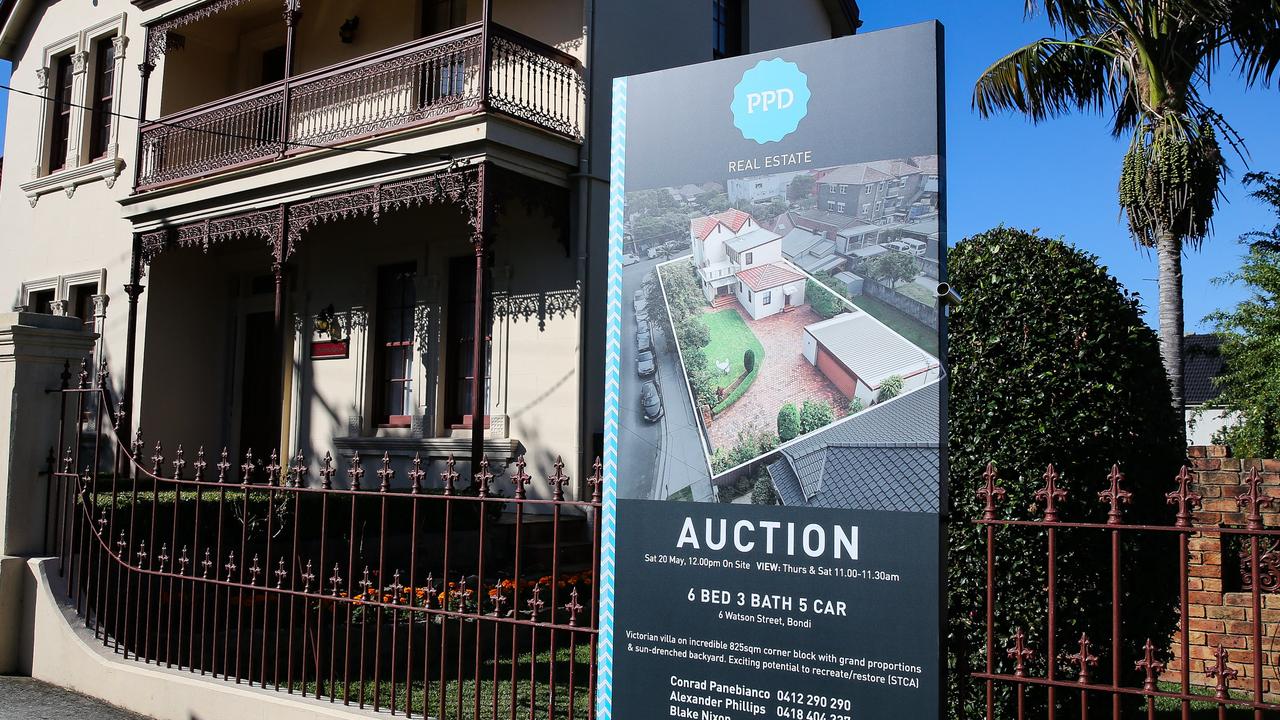Revealed: How inflation spike will affect your home loan
Soaring inflation rates will hit Aussie homeowners hard, with interest rates tipped to rise as soon as next week. Here’s how much extra you could pay on your home loan.
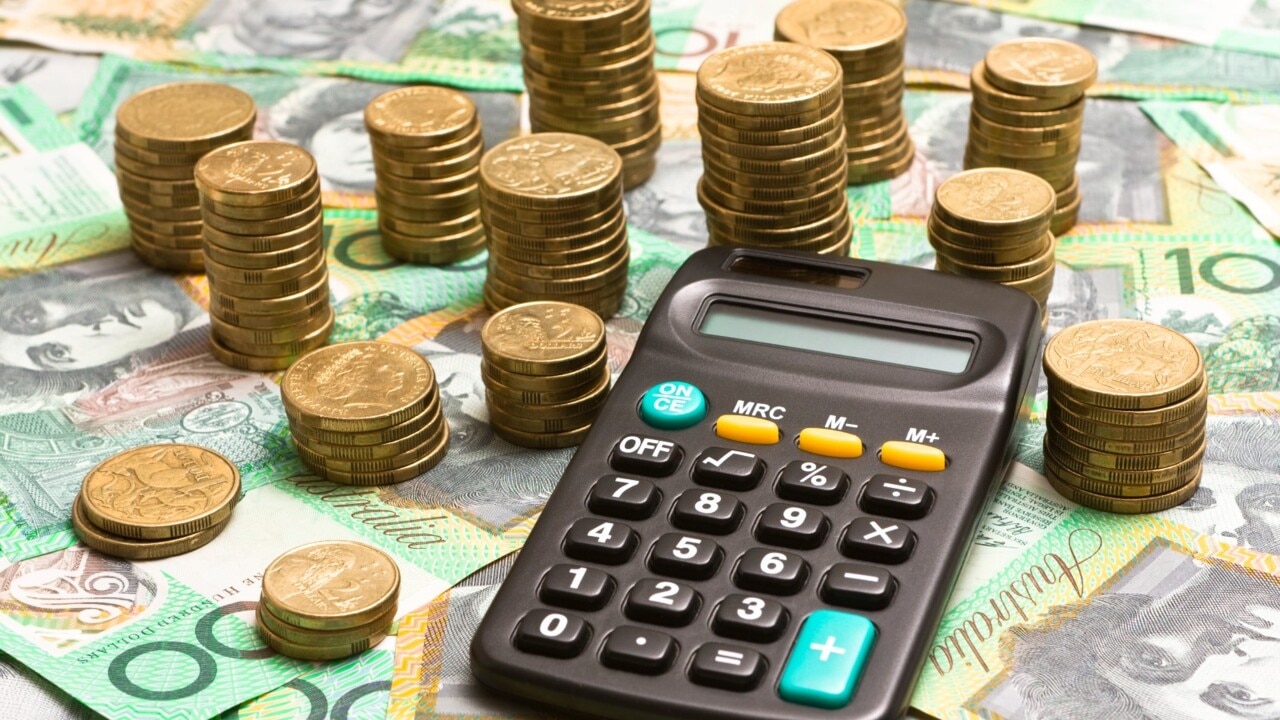
Federal Election
Don't miss out on the headlines from Federal Election. Followed categories will be added to My News.
Homeowners must brace for mortgage “shock” with an official cash rate rise likely as early as next week, as soaring inflation fuel a cost of living nightmare in the middle of the election.
The average NSW 30-year mortgage repayment would go up almost $200 a month if banks were to pass on a slated 0.4 per cent rate rise, which many economists are expecting the Reserve Bank of Australia (RBA) to announce next week at their May meeting, or June at the latest.
Australia’s annual inflation rate has reached 5.1 per cent following a 2.1 per cent increase in the first quarter of 2022 – the highest single jump since the GST was introduced 20 years ago.
The biggest contributors to inflation were a 5.7 per cent surge in building costs for new homes, an 11 per cent jump in fuel prices and a 6.3 per cent increase in tertiary education fees, according to the Australian Bureau of Statistics.
Food prices went up 2.8 per cent, with vegetables alone increasing by a staggering 6.6 per cent, while fruit rose 4.9 per cent, beef 7.6 per cent and soft drinks and juices went up 5.6 per cent.
The RBA’s preferred measure of inflation, which strips out the most extreme price moves, came in at 3.7 per cent, which is well above its 2-3 per cent target and adds to pressure for interest rates to start rising as soon as next week.
Analysis by The Daily Telegraph has found repayments on the average home loan in NSW for an existing dwelling, which was $790,582 as of February 2022, would increase by about $173 a month if banks passed on a full 0.4 per cent rate rise.
Assuming the homeowner had a 10 per cent deposit and a mortgage interest rate of 2.99 per cent over 30 years, their monthly repayment would go from $3,329 up to $3,502 in order to continue paying off the principal amount at the same speed.
Although the inflation increase was mostly driven by the global factors outside the government’s control, economists said the domestic impact on mortgages and prices of basic goods was a “problem” awaiting whoever is elected on May 21.
Independent economist Saul Eslake said he expected the RBA may have to increase rates straight to 0.5 per cent next week, as any less would simply result in a big hike in June.
“It’s almost impossible for the Reserve Bank not to raise rates next week,” he said.
“If they put it off for political reasons, they risk their credibility being eroded.”
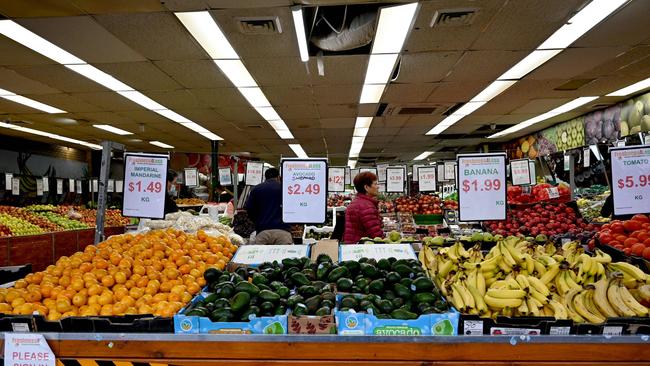
Mr Eslake said most Australians who had a mortgage before rates dropped to record lows in 2020 would likely have created a “buffer” by maintaining their payments and getting ahead on their loans.
“These households would be able to absorb a rate rise, but it would still be a shock for people,” he said.
The AMP’s chief economist Shane Oliver also said he expected the RBA to raise rates next week to 0.5 per cent.
“The case to hike is now overwhelming,” he said.
Mr Oliver said if the price surge was only in petrol and homebuilding costs, the RBA could have potentially “looked through it,” but the “problem” was the increases were “broad based”.
CommSec chief economist Craig James said while a cash rate hike would be a “live issue” at next week’s RBA board meeting, he believed the central bank would wait until the wages growth data was released on May 18 before making a decision.
“We take the RBA at its word saying it wants to see wages growth first,” he said.
Mr James said the next inflation figures in June would be impacted by the government’s decision to slash the fuel excise in half for six months, theoretically reducing transport costs for other goods like vegetables and meat.
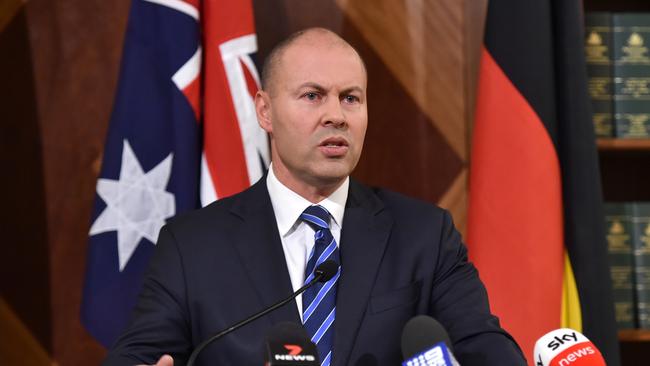
ANZ economists have warned the current cash rate target of 0.1 per cent was now “inappropriate”.
Commonwealth Bank’s head of Australian economics Gareth Aird also said there was a “clear risk” the RBA would raise the cash rate at the May board meeting next week.
Canstar’s Effie Zahos agreed, saying a cash rate hike was now “very likely” and if the RBA did not move, “it could be accused of letting an election get in the way of what numbers are telling it to do”.
Treasurer Josh Frydenberg said he was “not going to speculate” on what the RBA might do on interest rates, but had long warned they would “normalise” from the record low 0.1 per cent.
Mr Frydenberg said the key drivers of the inflation figures were housing, food and transport costs, arguing Australia was “not immune” from international pressures.
“The war in Ukraine has seen a spike in fuel prices, gas prices and commodity prices being felt here at home.“
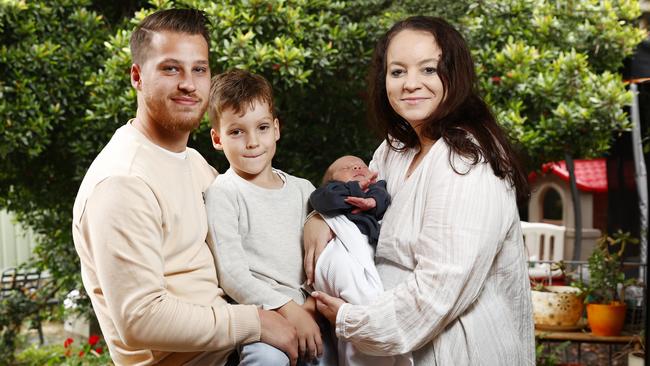
Labor’s treasury spokesman Jim Chalmers said the surging inflation was a “wake up call” to the government about cost of living pressures.
“We’ve said that there’s a role for cost of living relief in the near term, as Australians are getting absolutely smashed by (the) skyrocketing cost of living and falling real wages,” he said.
Mother of four Jess Peereboom lives in Raby in Western Sydney and said rising costs of living had dramatically impacted her family in recent months.
“The cost of food, fruit and veg, petrol and daycare have all gone through the roof,” she said.
Ms Peereboom said her family moved in with her mum in November 2020 for what they had planned would be a year, but was now likely to last much longer.
“If we were renting or we had a mortgage we wouldn’t have been able to have a fourth child,” she said.
“We’re living fortnight to fortnight and that doesn’t feel nice, especially with children.”




